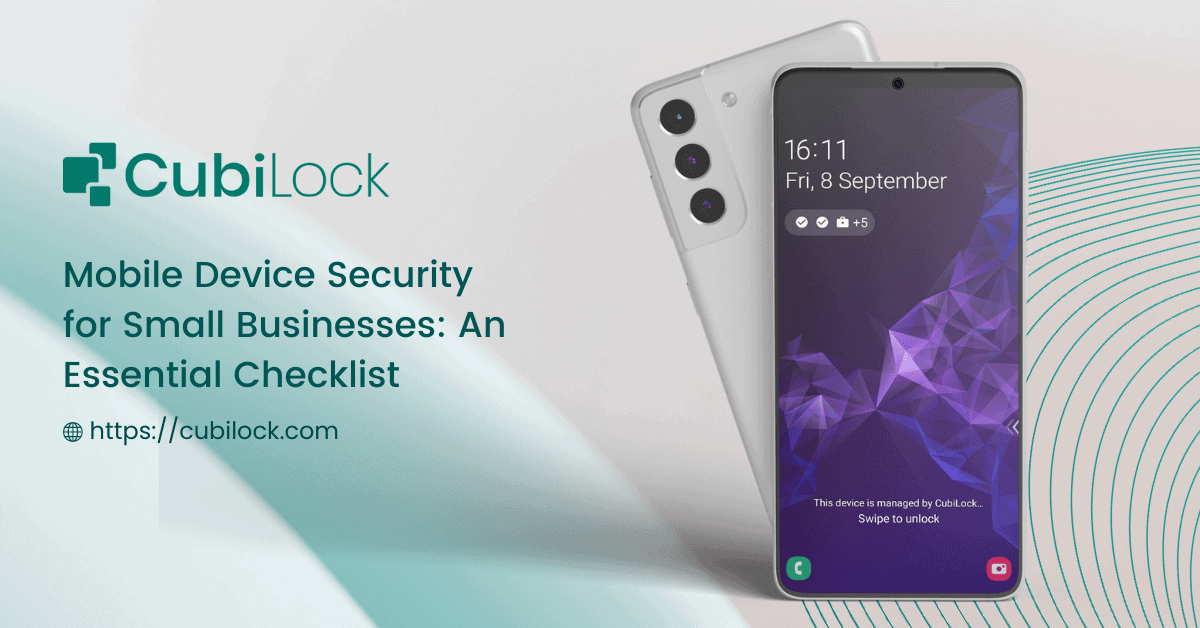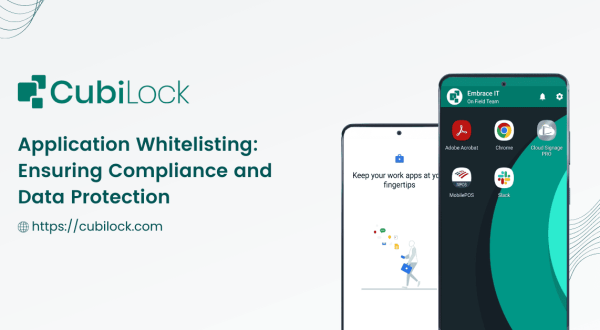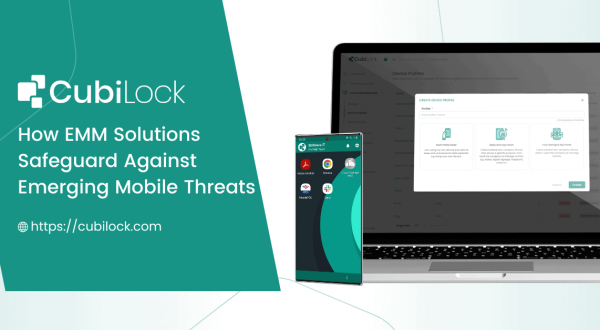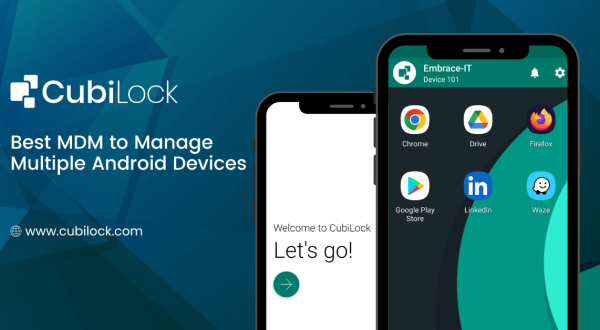Ultimate Mobile Device Security Checklist for 2023
- September 23, 2023

In today’s digitally-driven world, small businesses rely heavily on mobile devices to streamline operations, improve productivity, and stay connected with customers. However, the convenience of mobile devices also brings significant security risks. Small businesses must prioritize mobile device security to protect sensitive data, maintain customer trust, and prevent potential financial losses. In this comprehensive guide, we’ll help small businesses by providing mobile device security Checklist.
Why Mobile Device Security?
Mobile device security is of paramount importance in today’s interconnected world. As smartphones and tablets have become integral to our personal and professional lives, they store vast amounts of sensitive information, making them prime targets for cyberattacks. Here are some key reasons why mobile device security is crucial:
- Data Protection: Businesses store vast amounts of sensitive information on mobile devices, including customer data, intellectual property, financial records, and confidential communications. Ensuring the security of this data is essential to protect the company’s interests and maintain trust with customers and partners.
- Regulatory Compliance: Many industries are subject to strict data protection regulations and compliance standards. Failing to secure mobile devices can result in costly fines and legal consequences. Compliance with regulations like GDPR, HIPAA, or PCI DSS requires robust mobile security measures.
- Intellectual Property Protection: Businesses often develop proprietary software, products, or technologies. Inadequate mobile security can lead to intellectual property theft or industrial espionage, jeopardizing a company’s competitive advantage.
- Remote Work: The rise of remote work has made mobile devices indispensable for employees. Secure mobile devices enable remote work without compromising data security, ensuring business continuity and productivity.
- Cyberattacks and Ransomware: The threat of cyberattacks, including ransomware, is on the rise. A successful attack can disrupt operations, lead to data loss, and result in financial losses. Strong mobile security can help prevent and mitigate such attacks.
- Brand Reputation: A data breach or security incident can tarnish a company’s reputation. Customers and partners may lose trust in a business that cannot protect their data, potentially leading to loss of revenue and business opportunities.
- Productivity and Efficiency: Secure mobile devices enable employees to work efficiently and access essential business resources on the go. Without proper security, employees may be hesitant to use mobile devices for work, hampering productivity.
- Supply Chain Security: In many industries, mobile devices are used in the supply chain for tracking and management. A breach of these devices could disrupt the supply chain, affecting production and delivery schedules.
- Costs of Data Breaches: Recovering from a data breach can be extremely costly. Businesses may incur expenses related to investigation, legal fees, customer notifications, and reputation repair. Cybersecurity insurance premiums can also increase.
- Competitive Advantage: Businesses with strong mobile security practices can use this as a selling point to attract customers and partners who prioritize data protection. It can be a competitive advantage in the marketplace.
Mobile device security is not just a technical concern; it’s a strategic imperative for businesses. Failing to invest in robust security measures can lead to financial losses, legal troubles, damage to the brand’s reputation, and a loss of competitive edge. Businesses must view mobile device security as an integral part of their overall cybersecurity strategy and allocate the necessary resources to ensure it is robust and up-to-date.
14 Mobile Device Security Checklist
Establishing a Mobile Device Security Policy
- Define Clear Policies and Procedures
Begin by creating a well-defined mobile device security policy that outlines acceptable use, data protection guidelines, and consequences for policy violations. Ensure all employees are aware of and agree to adhere to these policies. A strong policy forms the foundation of your mobile device security strategy, setting clear expectations for employees regarding the protection of company data. - Employee Training
Invest in comprehensive employee training programs to educate your staff about mobile device security risks, best practices, and the importance of data protection. Training should not be a one-time event but an ongoing process to keep employees updated about emerging threats and security protocols.
Device-Level Security Measures
- Screen Lock and Passwords
Enforce strong password policies on all mobile devices used for business purposes. Encourage the use of biometric authentication methods and automatic device locking after a period of inactivity. Passwords should be unique, complex, and regularly updated. - Encryption
Enable device encryption to safeguard data in case a device is lost or stolen. Encryption ensures that even if unauthorized individuals gain physical access to a device, they cannot easily access sensitive information. Consider implementing hardware-based encryption for added security. - Remote Wipe and Data Backup
Implement remote wipe capabilities to erase data from lost or stolen devices. Additionally, regularly back up data to secure cloud storage to prevent data loss. An effective backup strategy is crucial to ensure business continuity in case of data loss due to device theft or failure.
Secure Network Access
- Virtual Private Network (VPN)
Require employees to use a VPN when accessing business resources from outside the office. VPNs encrypt internet traffic, ensuring secure communication over public networks. Choosing a reliable VPN service and configuring it properly is essential to protect sensitive data during remote access. - Public Wi-Fi Usage
Educate employees about the risks associated with public Wi-Fi networks and instruct them to avoid using unsecured networks for business-related tasks whenever possible. Encourage the use of mobile hotspot or tethering options when secure networks are unavailable.
Application Security
- App Permissions
Educate employees about the importance of reviewing and limiting app permissions. Encourage them to grant only necessary permissions to applications. Regularly review and audit app permissions to ensure that no unauthorized access is granted. - Secure App Downloads
Emphasize the use of official app stores for downloading apps. Caution against sideloading apps from unofficial sources, as these can pose significant security risks. Implement app whitelisting, which allows only approved apps to be installed on company devices.
Mobile Device Management Solution
- Implement a Mobile Device Management (MDM) Solution
A Mobile Device Management solution is a crucial component of small business mobile device security. MDM for small businesses empowers you to remotely manage and secure mobile devices used for dedicated purposes. It enables you to enforce security policies, remotely lock or wipe devices, and track device usage. Consider investing in a reliable MDM solution that aligns with your business’s needs and budget. MDM also provides insights into device health and compliance, helping businesses stay proactive in addressing security vulnerabilities.
Regular Security Audits and Updates
- Regular Security Audits
Schedule periodic security audits to assess the effectiveness of your mobile device security measures. Identify vulnerabilities and address them promptly to stay ahead of potential threats. Security audits should include penetration testing, vulnerability scanning, and compliance checks. - Software Updates
Ensure that all devices and apps are kept up to date with the latest security patches and updates. Outdated software can be an entry point for attackers. Implement a patch management system to automate updates and minimize the risk of unpatched vulnerabilities.
Also read: Implementing BYOD for Android
Incident Response Plan
- Develop an Incident Response Plan
Prepare for the possibility of a security incident by creating a detailed incident response plan. Define roles and responsibilities, establish communication protocols, and outline steps for containing and mitigating security breaches. Conduct regular tabletop exercises to ensure that your team is well-prepared to respond to security incidents effectively.
Secure Disposal and Decommissioning
- Proper Disposal of Devices
When a device reaches the end of its life cycle, ensure it is properly disposed of or securely wiped to prevent the exposure of sensitive data. Consider partnering with a certified e-waste disposal company to handle the secure disposal of old devices.
Mobile device security is paramount for small businesses in an increasingly digital world. By implementing the checklist provided in this guide, you can significantly reduce the risks associated with mobile device usage and safeguard your business’s sensitive information. Remember that mobile device security is an ongoing process, and staying vigilant is key to protecting your business and customer data.
By following these essential steps and investing in a mobile device management solution, your small business can strike a balance between productivity and security, ensuring that your mobile devices remain valuable tools rather than potential liabilities. Continuous monitoring, adaptation to evolving threats, and a culture of security awareness are essential components of a robust mobile device security strategy.
In conclusion, by prioritizing mobile device security, small businesses can thrive in a connected world while protecting their most valuable assets—data and customer trust.

Device Security Analyst, loves testing devices that are used for dedicated purposes.







